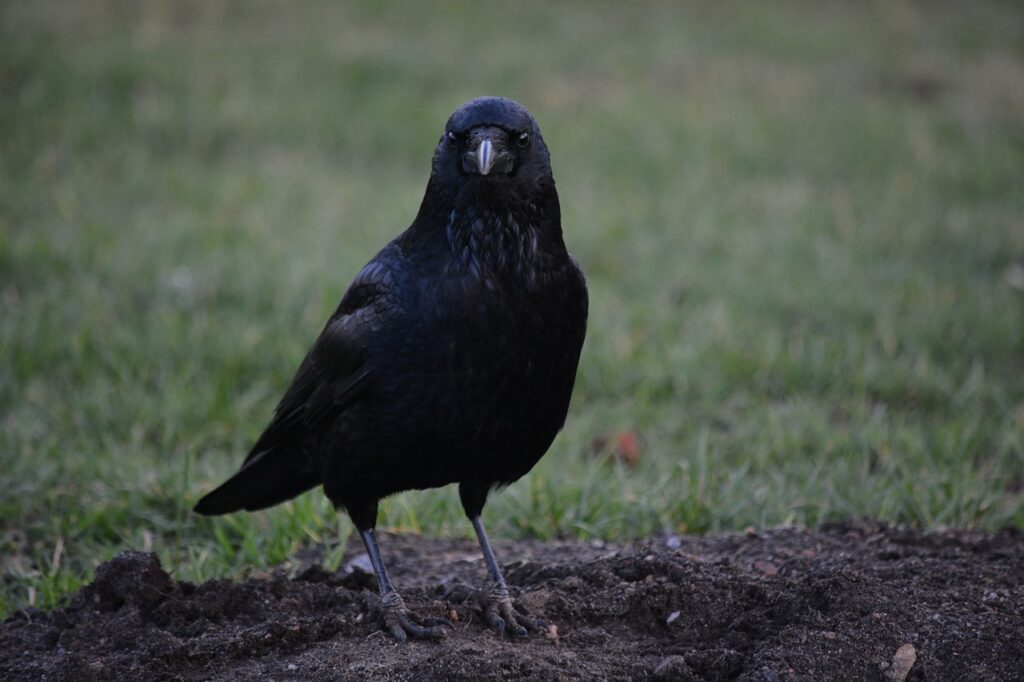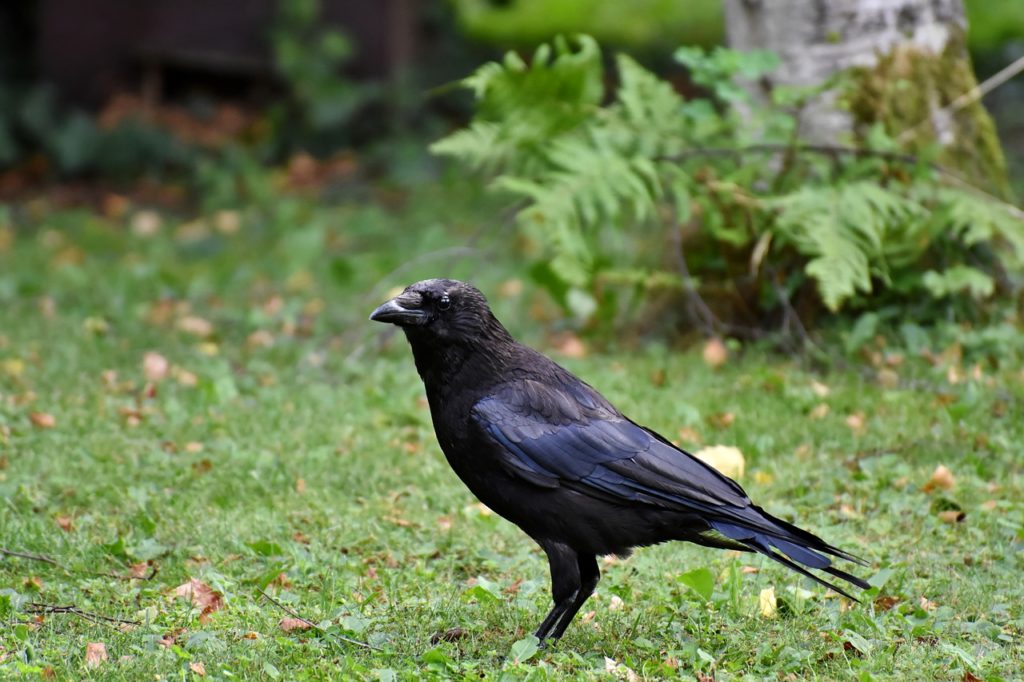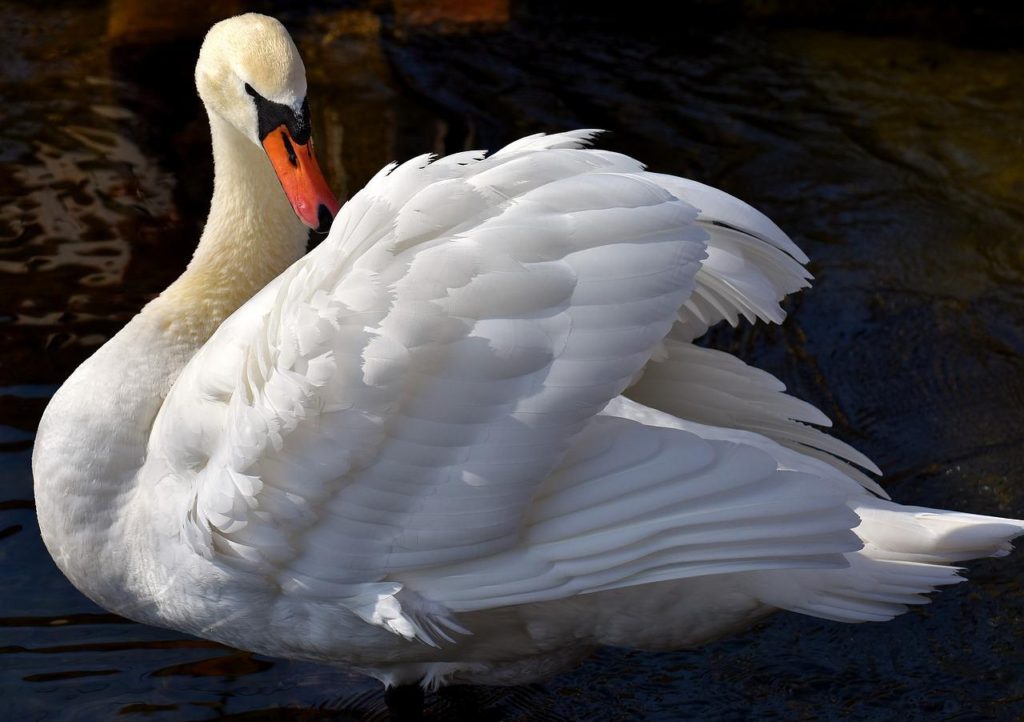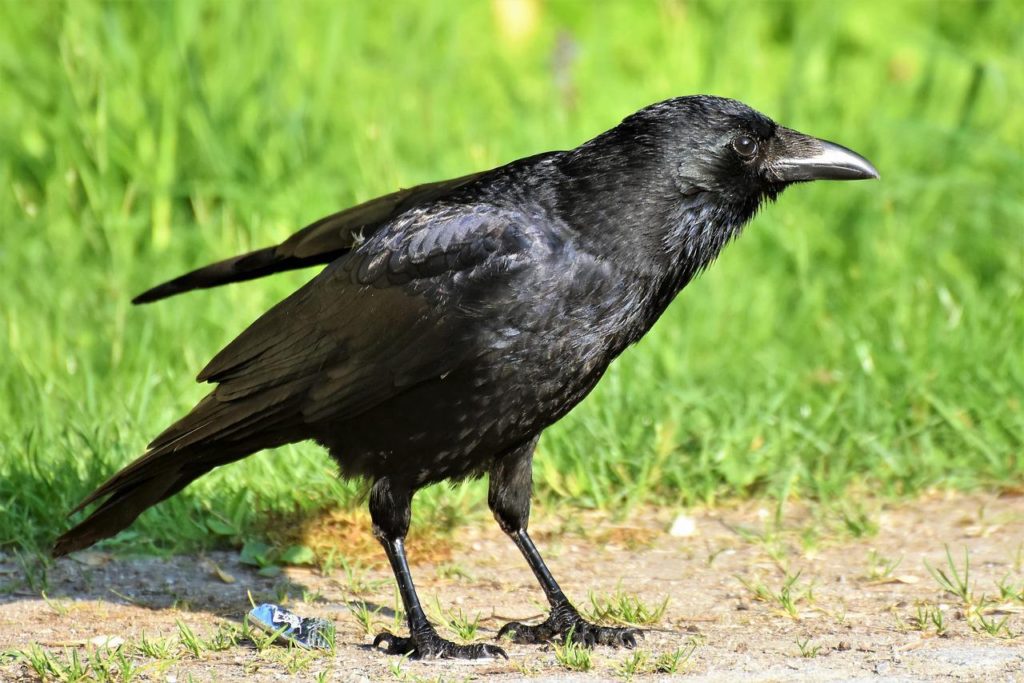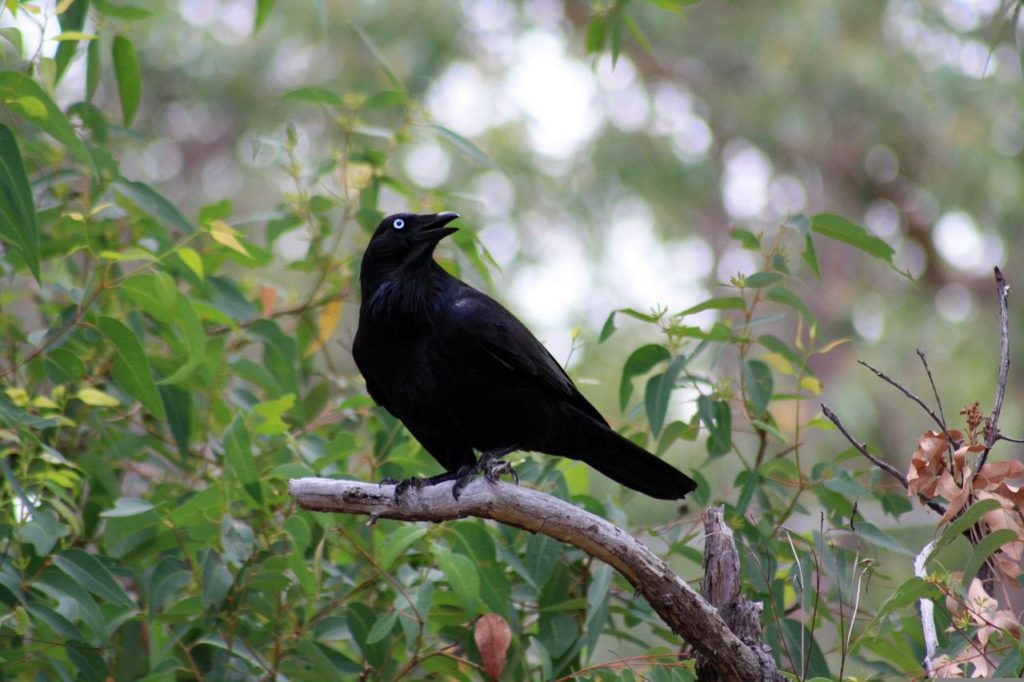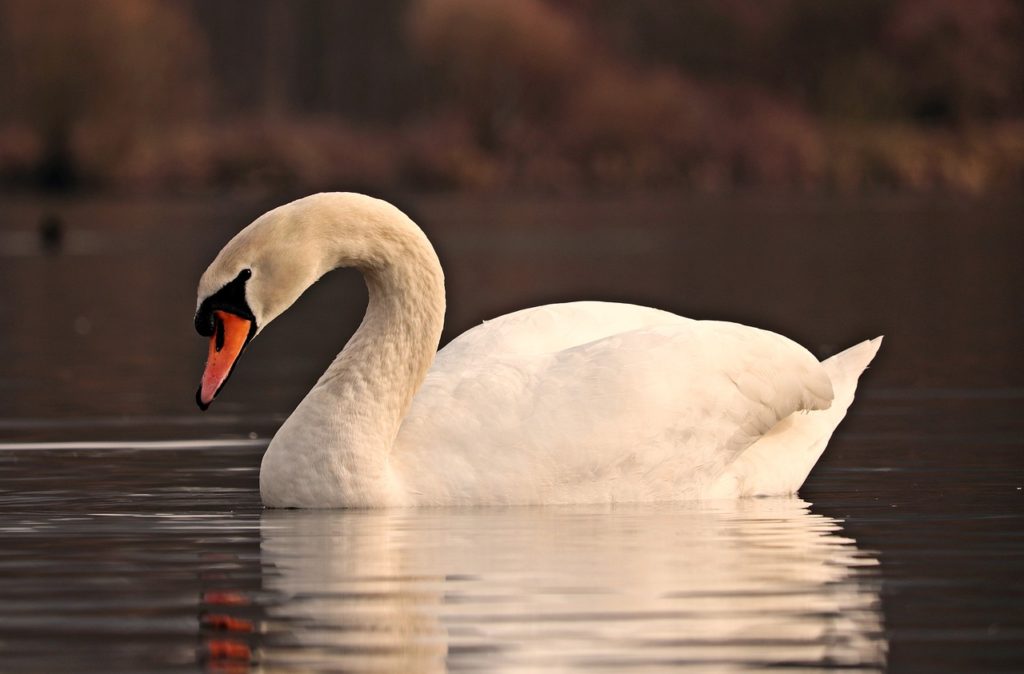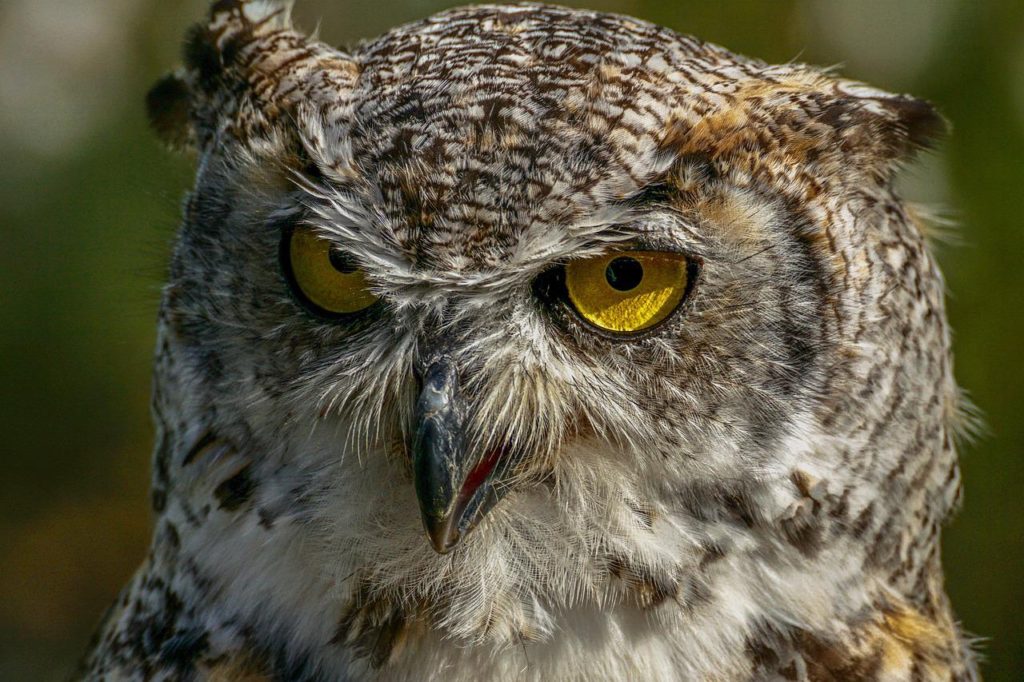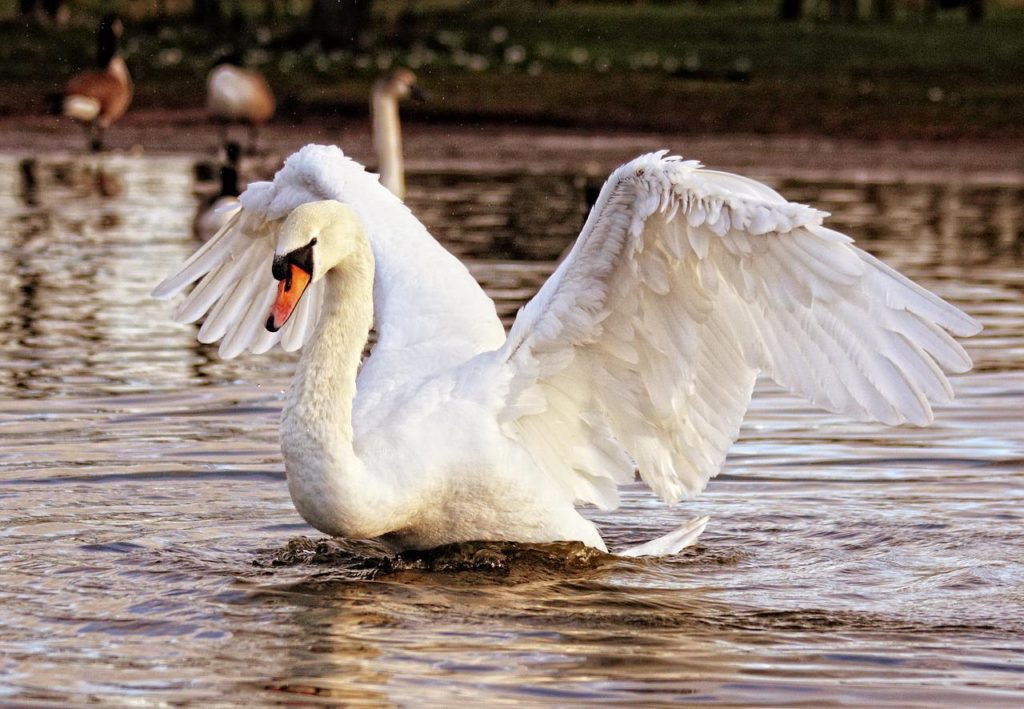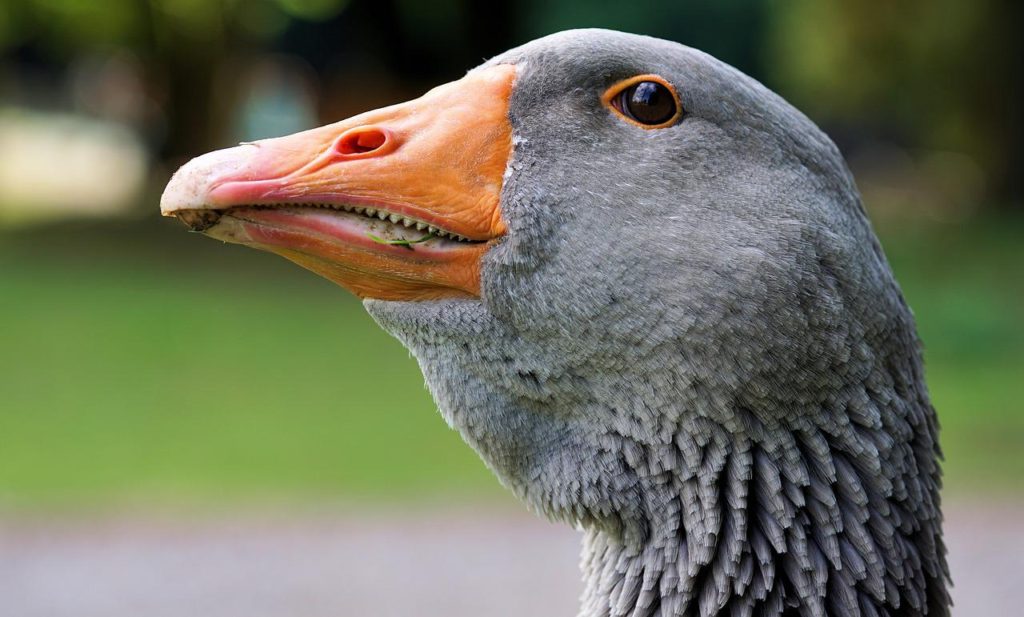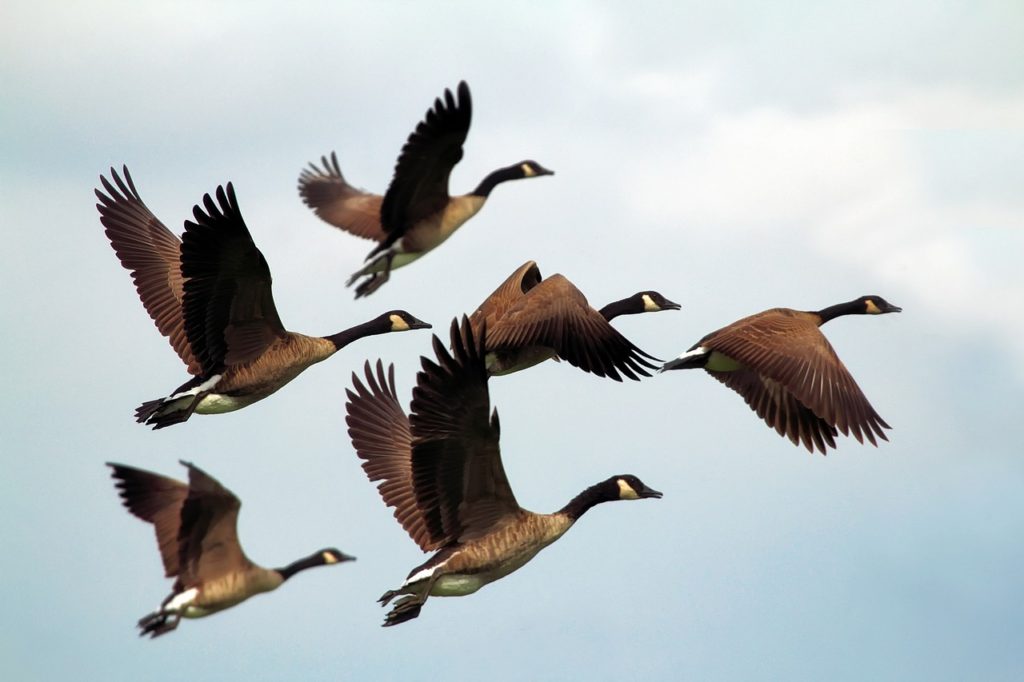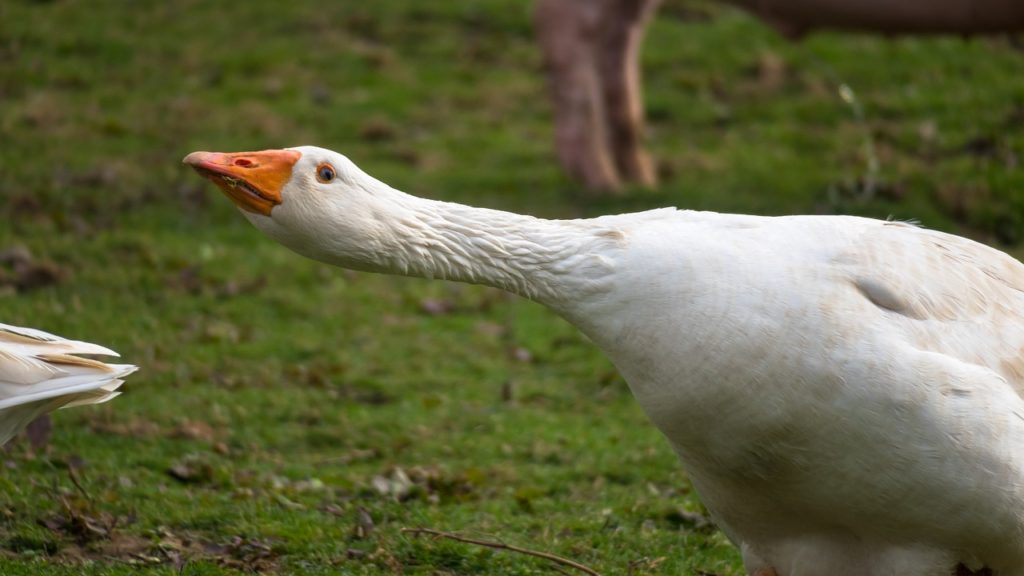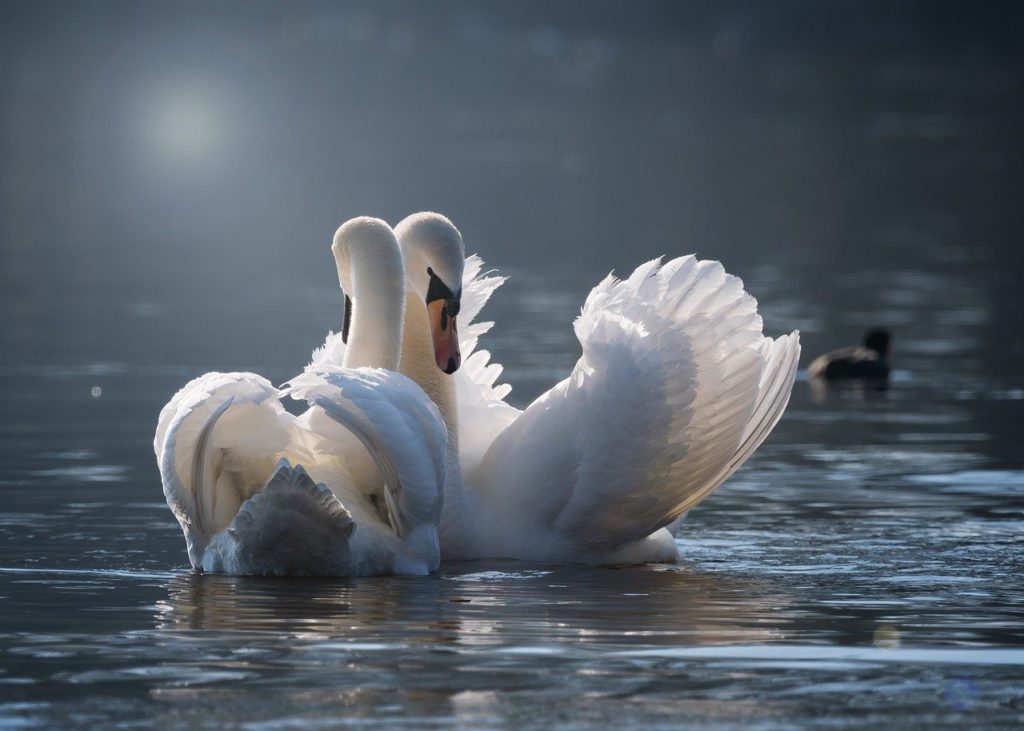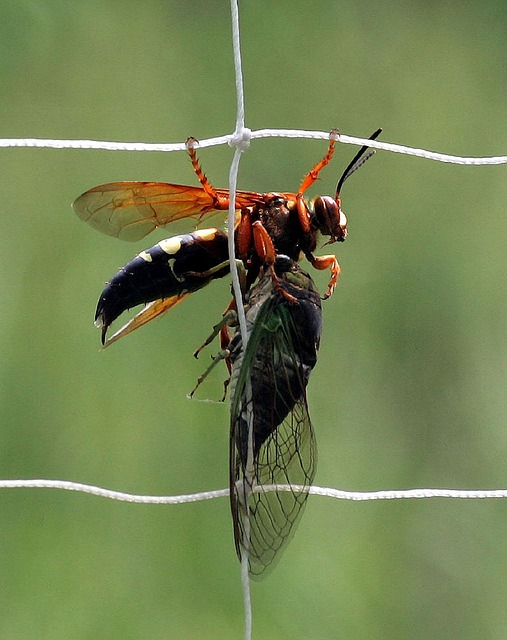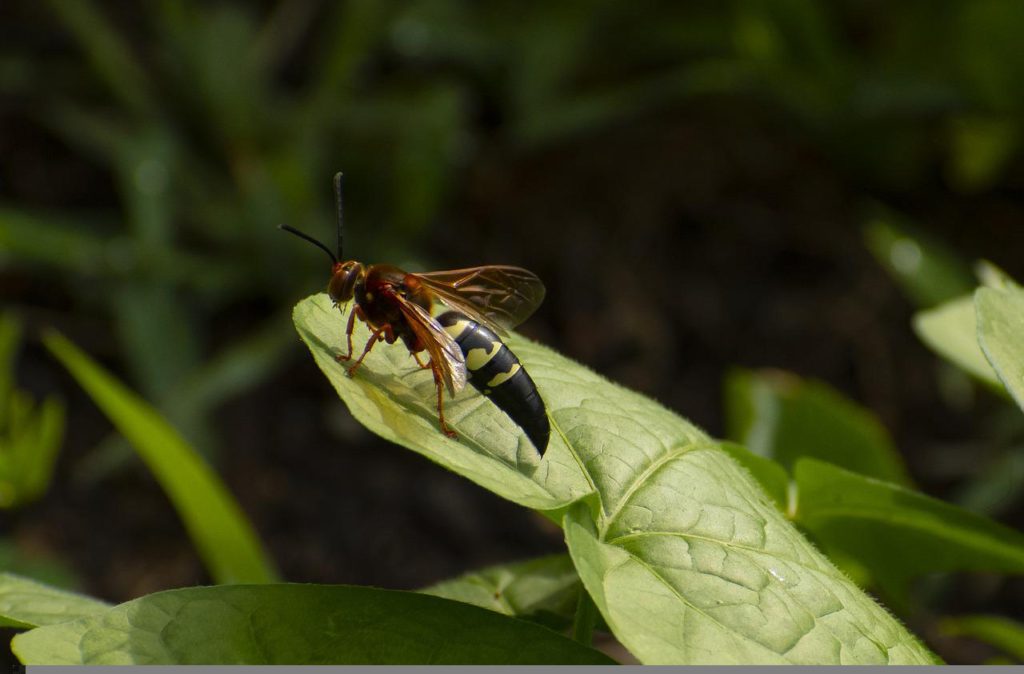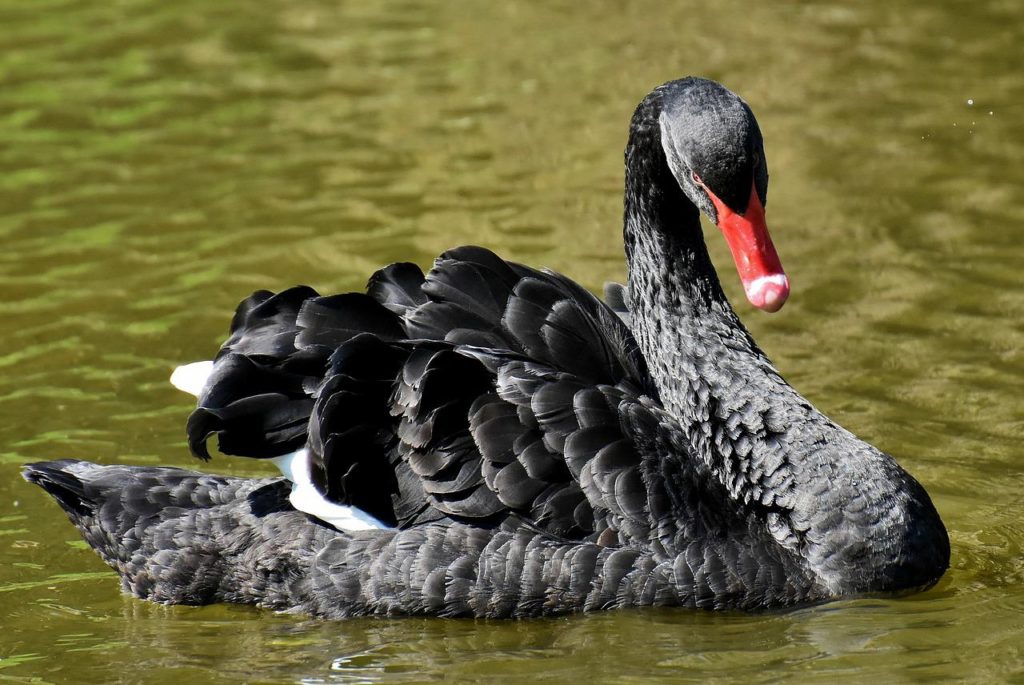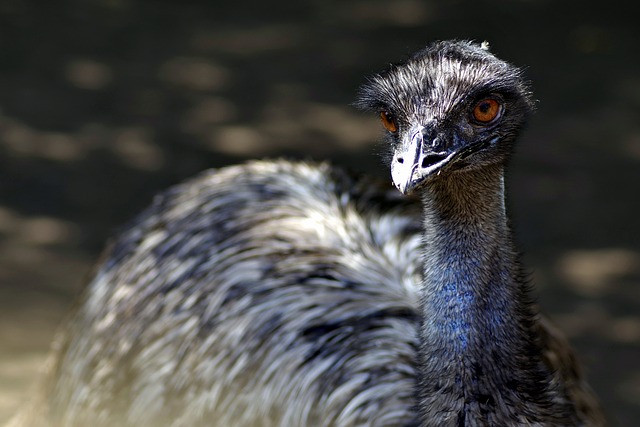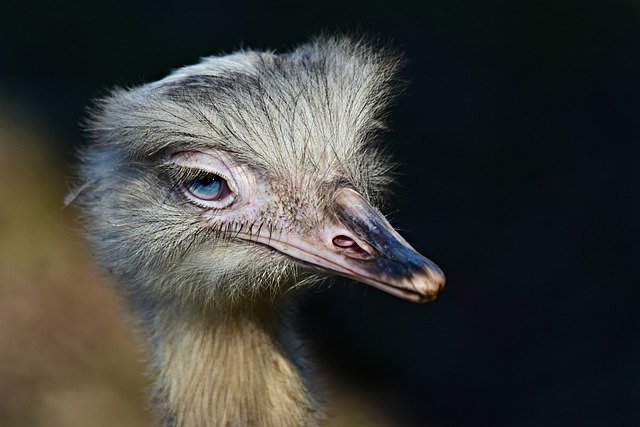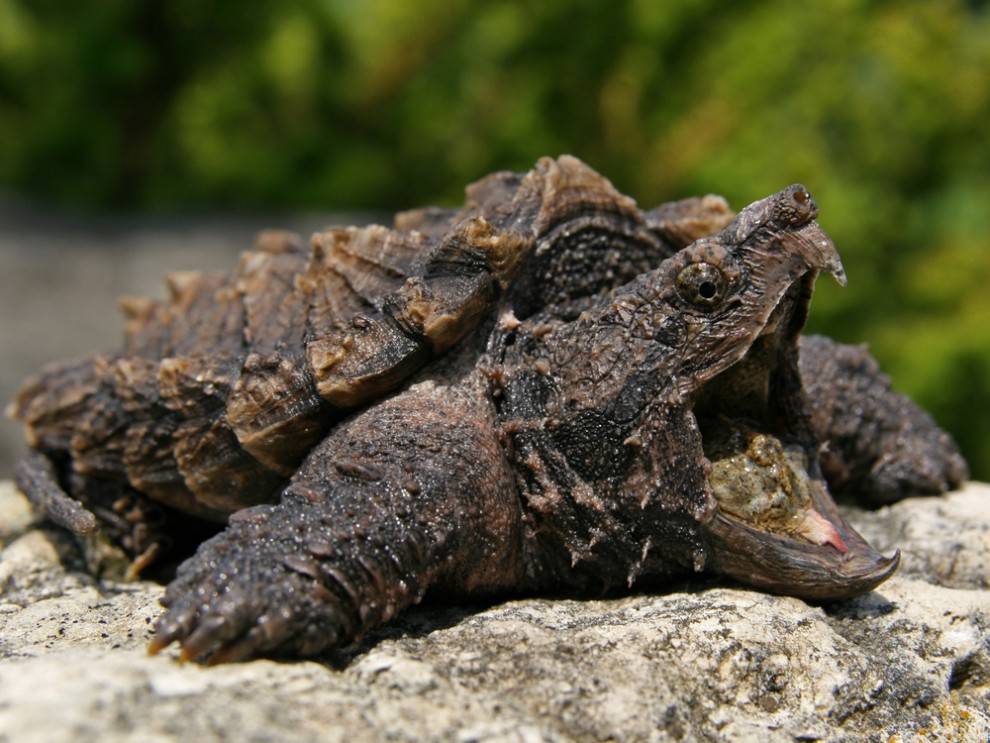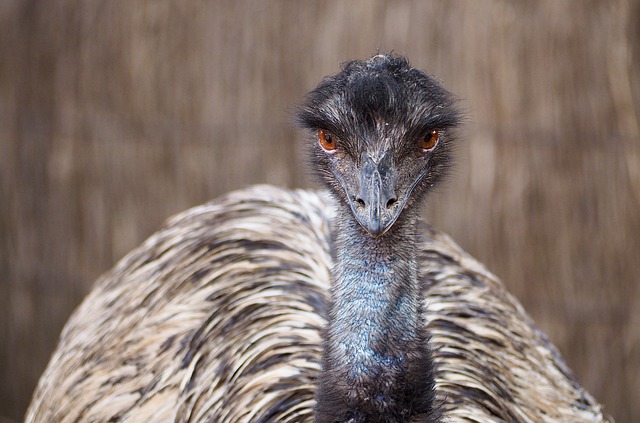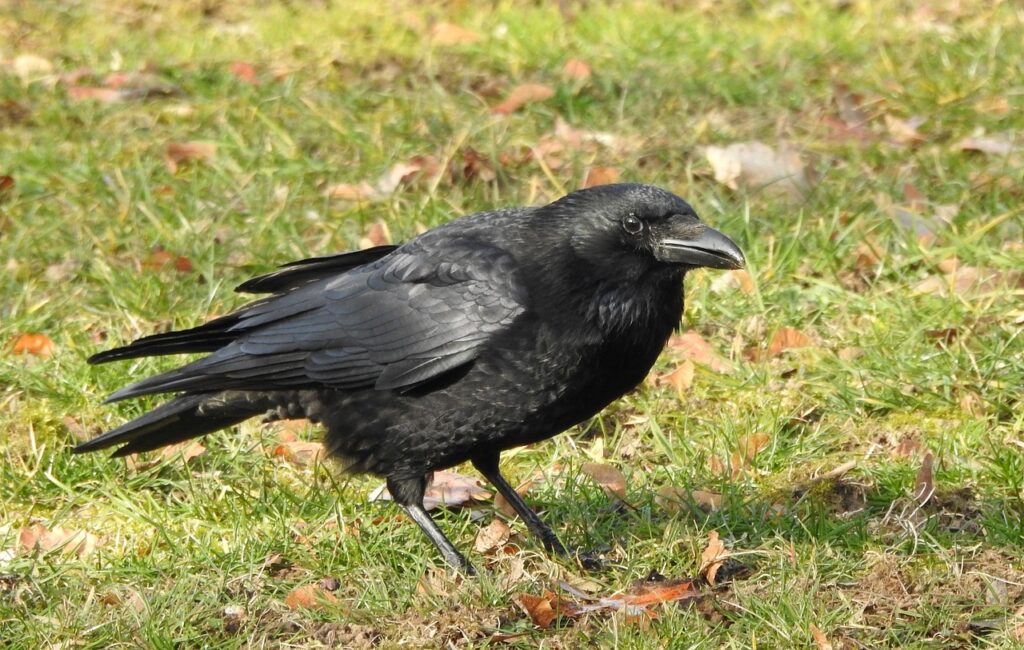
How long do crows live? That’s one of the many questions people ask about these familiar all-black birds. Here’s what you’ll want to know about the lifespan of crows and what affects it.
How Long Do Crows Live In The Wild?
In the wild American crows have a lifespan of around 7-8 years. However, according to research on banded American crows, they can sometimes reach 18 years or more. That being said, crows (like many other bird species) have a very high mortality rate when they’re young. It’s estimated that 50-60% of all crows die within their first year of life.
But the young crows that survive this critical time have a good chance of reaching adulthood and also living for a long time. There is no accepted way to determine the exact age of wild crows. And estimating their age can be a challenge. The primary method used for estimating a crow’s lifespan in the wild is by banding them.
Banding is also called ringing. And it involves catching wild crows, attaching a numbered band around their leg, and releasing them. Later on, at some point in their lives, they may be recaptured. However, there is no guarantee that researchers will ever be able to catch individual crows again.
If they are caught, the researchers can look up their band number to find out how much time has passed since the crow was originally fitted with the band. This gives them a “minimum age,” for the crow. It is not an exact age since there is no way to know precisely how old the crow was when it was first banded.
Factors Affecting Crow Lifespan In The Wild
Several factors can affect how long a crow lives in the wild, including the following.
Predators
While crows are wary birds, they do have many predators. There are quite a few animals that prey on adult crows, baby birds, and crow eggs. These include birds of prey such as owls, hawks, and eagles. Raccoons, snakes, and cats are threats to crows too, both on the ground and sometimes in the trees.
Humans
Crow populations are often controlled by legal hunting and trapping. And because they are unfortunately viewed as pests, they are sometimes illegally killed as well. In addition, they may be accidentally killed by humans. For example, vehicles sometimes accidentally strike crows when the birds are feeding on roadkill.
Disease
Exposure to diseases can also affect a crow’s life expectancy. They can contract various avian diseases. And they are well-known for being highly susceptible to the West Nile virus. The virus is nearly 100% fatal for infected crows. This is substantially higher than most other bird species.
Scarcity Of Food
Sometimes due to the changing of the seasons, a high number of competing crows nearby, the use of pesticides, or a range of other reasons food can be scarce. And not getting the nutrients they need can negatively impact their health and possibly how long they live.
Why Do Crows Live So Long?
While there are many threats to crows in the wild, there are also several factors that are believed to help crows live relatively long lives. That is of course if they can survive. Crows live in family groups. And in those groups, they work together to find food, feed the young, and protect their territory from other crows and predators. By combining their efforts the crows increase the chances of the entire group’s survival.
Young crows typically stay with their family group for several years until they reach sexual maturity. That’s much longer than most birds. But it gives them the time they need to learn vital survival skills before they leave the group, find a mate, and defend their own territory.
A huge advantage crows have when it comes to surviving is that they have the traits of being incredibly intelligent and at the same time highly adaptable. Their cognitive abilities are actually believed to be equivalent to that of apes. And they can adjust and adapt to changing conditions and circumstances easily.
And unlike many birds that have more specialized diets, American crows are opportunistic omnivores. They can (and do) eat an enormous array of foods from insects to dead animals or even human trash. And this allows crows to take advantage of almost any food source they come across.
How Long Do Crows Live As Pets?
A Crow’s life expectancy in captivity is much longer than a wild crow’s. Crows kept in captivity or as pets are known to live up to 20 years old or more. There are many claims of captive crows living even longer. And while some of these may be true, they are usually difficult to prove since in most cases there isn’t any official documentation proving when the crow hatched.
Captive crows typically have many benefits that wild crows don’t. And of course, these help them to live much longer lives. For example, unlike in the wild they live in controlled environments where they often have access to shelter, are protected from temperature extremes and severe weather conditions, and aren’t usually exposed to harmful substances.
Also, captive crows are protected from their natural predators and humans. And many crows even have access to veterinary care and are treated for any injuries or diseases that could mean death in the wild.
Start Shopping for Birding Supplies!
What Are Crows Good For?
Crows are widely considered to be pests. However, these large and highly intelligent black birds actually serve quite a few important functions in the environment. So what are crows good for? Here's what you'll want to know. Pest And Parasite Management Crows are...
How Long Do Swans Live?
Swans are graceful and beautiful creatures and as such, people have many questions about them. They want to know about their mating rituals, their diet, their preferred habitats, and even their lifespans. How long do swans live for anyway? Swan lifespans actually vary...
Are Crows Good Pets?
People all around the world see and hear crows on a daily basis. Although these intelligent and dark birds are practically ubiquitous, most people don't think of them as being household pets. Are crows good pets? The general consensus is that crows do not make...
Are There Crows In Australia?
Crows are remarkably smart birds that also happen to be extremely adaptable. They navigate unfamiliar circumstances via observation and interaction. Crows reside in locations all over the globe. While they do not live in certain parts of South America, they do reside...
What Do Swans Eat?
Swans are famously long-necked birds that are symbols of romance, love, beauty, and purity. Since these waterbirds have so many admirers, people often wonder about their eating habits, behaviors, and more. What do swans eat, anyway? Swan Basics Swans typically live in...
Birds That Look Like Owls
Owls are typically solitary and mainly nocturnal birds. And although these well-known hooting creatures have a rather distinctive physical appearance, there are actually various other kinds of birds that resemble owls closely. And people sometimes mix them up. So...
Why Are Swans Protected?
Swans are graceful and gorgeous creatures. They also happen to have protection in the United Kingdom, interestingly enough. Why are swans protected there, anyway? And does the Queen own all the swans? Yes, she actually owns any mute swans that are unclaimed in both...
Birds With Teeth
Birds do not have teeth. However, there are quite a few that really look like they do! These birds have evolved special beaks which help them to perform important functions. So here are some of the most amazing birds with “teeth,” and what you’ll want to know about...
Do Geese Fly?
Although geese are clearly birds, there are many individuals who do not necessarily associate them with flying. So, do geese fly? The honest answer is that these waterfowl do. They do not exactly slouch in the flying department, either. Many people are pleasantly...
Are Geese Dangerous?
Geese, in brief, are waterbirds that are quite substantial in size. Since they're often spotted on golf courses, at schools, and in community parks, people understandably tend to wonder whether they're safety threats. Are geese dangerous? Why Geese Attack...
Do Swans Mate For Life?
Swans are famously elegant waterbirds that are known for their sizable bodies, webbed feet, and lengthy necks. People often associate them with romantic imagery and monogamy. Do swans mate for life? You can find the response to that common and rather fascinating...
When Do Cicada Killers Come Out?
Whether you dread them each year or are waiting for them to emerge and control the cicada population you may be wondering, “When do cicada killers come out? The answer is they come out each summer in late June or July. Here’s what you’ll want to know. Cicada Killer...
Are Cicada Killers Dangerous?
One look at one of these huge wasps buzzing around, your yard, and it’s only natural to ask, “Are cicada killers dangerous?” Fortunately, these wasps are mild-mannered. But here’s what you’ll want to know. Cicada Killer Wasps Basics Cicada killers emerge from the...
What Are Black Swans?
What are black swans? Black swans (Cygnus atratus) are sizable waterbirds. This species primarily appears in Australia's southwestern and southeastern portions. The black swan is nomadic in its homeland. This bird, true to its name, is mostly black. Although the bird...
What Do Cicada Killers Eat When There Are No Cicadas?
What do cicada killers eat when there are no cicadas? Well, while cicada killer wasps do hunt cicadas, the adults don’t actually eat them or kill them, their young do. Read on to learn more! The Cicada Killer Diet While you may have seen cicada killer wasps flying...
Do Cicada Killer Wasps Sting?
As one of the biggest species of wasp in North America the cicada killer wasp can be intimidating. And because of their size, appearance, and scary-sounding name, many people wonder, “Do cicada killer wasps sting? The answer is yes and no, and here’s what you’ll want...
Emu Facts
Did you know? One emu egg can make an omelet that can feed up to six adults. Did you know that the emu is the only bird with calf muscles? Can an emu walk backward? Let us find out by exploring some of the most jaw-dropping emu facts. Emus Have Amazingly Powerful Legs...
Rhea Facts
Doting dads, did you know the male rhea builds the nest, incubates the eggs, and takes care of the young? The rheas are paragons of parental care. It’s a bird like no other, and you will be surprised by the following rhea facts. Rheas Are One Of The Best Dads In The...
Alligator Snapping Turtle Facts
Flightless Australian Birds
There are over sixty species of flightless birds in the world. These birds have lost their capability to fly through evolution, and several of them live in the “land Down Under.” So here’s a list of all the flightless Australian birds. Emu The emu is a large...
